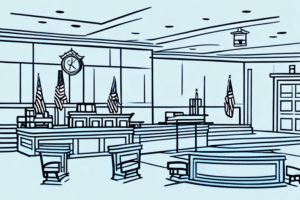Connivance: Its Impact on Separation, Divorce, and Family Law

Connivance occurs when one spouse secretly encourages or permits the other’s adultery to gain advantage in divorce proceedings
Connivance is a legal defence in divorce cases where the respondent claims their spouse knowingly allowed or facilitated acts of adultery. This differs from condonation, as connivance involves actual encouragement or permission of the behaviour. In Canadian family law, proving connivance can affect divorce proceedings in several ways:
- It may prevent the petitioning spouse from using adultery as grounds for divorce
- It can impact financial settlements and support arrangements
- It demonstrates bad faith behaviour in legal proceedings
- It may influence judicial decisions regarding divorce terms
Connivance remains relevant but rare in modern Canadian divorce cases
While no-fault divorce is now the standard approach in Canadian family law, connivance can still be relevant in specific circumstances. Connivance occurs when one spouse deliberately encourages or sets up the other spouse to commit an act that could be grounds for divorce.
However, its practical application has become limited for several reasons:
- The Divorce Act primarily focuses on marriage breakdown rather than fault-based grounds
- Courts generally prefer to address the practical aspects of separation rather than assign blame
- Most divorces proceed on the grounds of one-year separation
- Legal professionals rarely advise using connivance as a defence strategy
Connivance applies to various legal situations where someone knowingly permits wrongful conduct
While historically associated with adultery cases, connivance extends to many legal contexts where one party deliberately overlooks or tacitly permits another’s wrongful conduct. This legal concept applies when someone knowingly allows misconduct to occur, often with the intention of later using it to their advantage.
- Business dealings where partners ignore fraudulent activities
- Property disputes involving intentional negligence
- Contract breaches where violations are deliberately overlooked
- Insurance cases involving wilful blindness to misconduct
The key element in all connivance cases is the bad faith element – the conscious decision to allow wrongful behaviour for ulterior motives.
Connivance as a defence varies by jurisdiction and is largely obsolete in modern family law
In Canadian family law, connivance has become increasingly irrelevant as a legal defence since the introduction of no-fault divorce legislation. While historically used as a defence against divorce petitions, particularly in cases involving adultery, its application is now extremely limited.
The current status of connivance varies across jurisdictions:
- In Canadian provinces and territories, connivance is rarely considered due to the Divorce Act’s no-fault provisions
- Some Commonwealth jurisdictions still recognize connivance in limited circumstances
- Most modern legal systems have moved away from fault-based divorce defences entirely
- Where still available, courts generally view connivance claims with significant skepticism
Connivance involves consenting to wrongdoing, while collusion is a mutual agreement to deceive the court
In divorce proceedings, connivance and collusion are distinct legal concepts that can affect case outcomes. Connivance occurs when one spouse knowingly permits or encourages the other to commit a matrimonial offence, typically adultery, and then attempts to use that behaviour as grounds for divorce.
- Connivance involves:
- One spouse’s consent or encouragement of wrongful conduct
- Later attempting to use that conduct as grounds for divorce
- Collusion involves:
- Both spouses agreeing to fabricate or manipulate evidence
- Working together to mislead the court
- Creating artificial grounds for divorce
Connivance extends beyond divorce cases to various legal situations where someone knowingly permits wrongful acts
While connivance is most frequently encountered in divorce proceedings, its legal application is much broader. The concept applies whenever someone tacitly allows or pretends to be unaware of wrongful conduct by another party. This can occur in various contexts, including:
- Business partnerships where one partner overlooks fraudulent activities
- Property disputes where an owner knowingly permits trespassing
- Contract law when one party deliberately ignores breach of terms
- Employment situations involving intentional oversight of misconduct
In all cases, connivance involves conscious permission or willing blindness to wrongful acts, which can affect legal outcomes and liability.
Ken Maynard CDFA, Acc.FM
I assist intelligent and successful couples in navigating the Divorce Industrial Complex by crafting rapid, custom separation agreements that pave the way for a smooth transition towards a secure future. This efficient process is achieved in about four meetings, effectively sidestepping the excessive conflicts, confusion, and costs commonly linked to legal proceedings. Clients have the flexibility to collaborate with me either via video conference or in-person through a DTSW associate at any of our six Greater Toronto mediation centers, located in Aurora, Barrie, North York, Vaughan, Mississauga, and Scarborough.














































